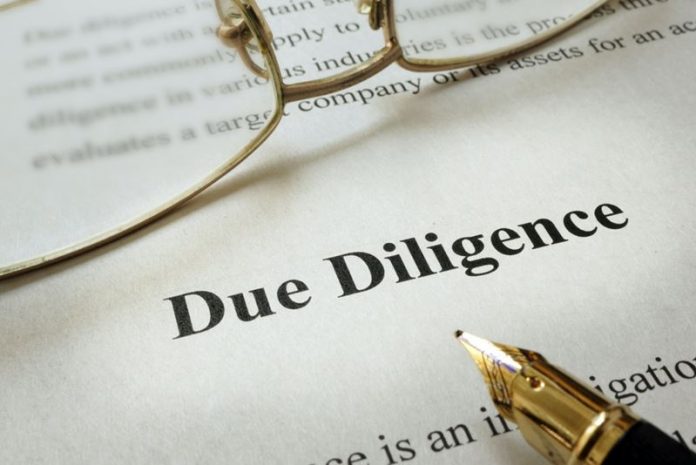This article has been written by Nishish Mishra, pursuing a Diploma in M&A, Institutional Finance, and Investment Laws (PE and VC transactions) from LawSikho.
Table of Contents
Introduction
Due diligence is an exercise that any investor or buyer will engage in, and in as exhaustive a manner as possible, prior to making an investment/acquisition. But what if the management of the seller entity is a step ahead? It will predict the requests likely to be made by the buyer and proceed with evaluating the operations in the company in the same manner. Then, when the buyer makes the requests, it will be more than ready with all the answers. This is precisely what reverse due diligence is taking a step back and looking at the operations and the systems in the company and discovering where the systems need a correction or could be made more efficient or where changes can be implemented.
What does reverse due diligence involve?
The reverse due diligence involves exactly the same steps as would be involved in the due diligence to be conducted by the buyer because that is precisely the objective, to do it before the can. However, from the viewpoint of the seller, it would cover the objective of how the efficiency in the business can be increased to make it attractive to a potential investor.
This is not as easy as it seems on the face of it because the company would have to engage in the due diligence without really affecting the normal business operations i.e. the business as usual and the investigation would have to proceed simultaneously. While in a possible takeover, whether or not it is intended, the normal business operations of the company would be impacted. The buyers’ requests may have to be prioritized by the employees. It involves the following type of due diligence:
- Financial due diligence Analysing the level and the growth in the financials of the company. Is the company generating profits? Where is the maximum turnover coming from? What is the expenses level? Could the earnings have been higher? What are the assets and liabilities of the company? What is the cash flow?
- Business due diligence What is the main business of the company? Where is it placed in the market? Can It tap other markets? Who are the competitors? Who are the top customers?
- Legal due diligence Analysing what are the legislations pending by and against the company and how they are progressing. Also, what is the level of compliance in the company, and also if there is a proper system in place to ensure compliance.
The seller company could engage its own internal audit/compliance testing or other employees or use external consultants to conduct such kind of due diligence. In whichever way, care needs to be taken to see that the exercise does not become just a tick box and brings to light the facts which it is expected to. Just as the actual due diligence has an objective to help the buyer decide whether or not it wants to acquire or invest in the target, the results of the reverse due diligence can help the target company decide whether or not to be acquired and how much investment is required to be secured.
Why does it make sense to conduct reverse due diligence?
- Secure a view into how valuable the business actually is
The reverse due diligence process helps you to have a good outsider’s view of your business. It will help you know how valuable the business really is. This can aid in the negotiations with the potential buyer or investor because you have been able to place a figure to the value of the company from your own analysis. In the absence of reverse due diligence, the buyer/investor and their consultants would value the company based on their investigation and this might not give out the details or the kind of background to an issue that the management who is actually dealing with it would be aware of.
- Improved negotiations for the seller
Not only will the management of the seller be able to negotiate better since they will not be taken by surprise, but they would also be able to resolve the queries that the buyers/investors may have in a more comprehensive manner since the analysis of the reverse due diligence will have provided this.
- Installing corrective systems
Reverse due diligence would bring to light any breakdowns or deficiencies in the existing systems or business operations and corrective actions can be implemented before the actual due diligence is conducted by the buyer or even if there is no potential transaction, it would help increase the efficiency.
Also, the employees might be readier and more forthcoming to bring up the system lacunae to the existing management and have it addressed than have it discovered by someone externally.
- Structuring the deal
Conducting a reverse due diligence may help the seller to arrive at the most appropriate structure of the deal i.e. Investment or acquisition in terms of the tax impacts, securities that should be issued to the investor, the kind of exit periods, and methods that should be negotiated with the investor on the basis of the business growth. It may even help to know the ideal or appropriate level of investment that is sought to be able to meet the objectives of the company or to maximize the returns to the shareholders.
- Helping integration
A reverse due diligence would give the management a view into how well the systems or operations of the company can be integrated into those of an acquirer. If the management favors acquisition by a particular acquirer, it would work on incorporating systematic changes which would make the Integration function better. Even the employees of the company might be more agreeable to the changes coming from the existing management, work with such changes for some time, and then integrate into a new organization.
- Reducing the time period for buyer’s due diligence
If the company has engaged in comprehensive reverse due diligence recently before this could be initiated by the buyer, the documents and findings could just be rolled over into the buyer’s due diligence and this will reduce the time taken by the buyer to investigate and finalize the deal. For this very same reason, reverse due diligence may even be helpful for the buyer since it reduces the time and cost of the buyer and he may be inclined to proceed with the deal. It would thus be a wise step for the management to spend on the reverse due diligence, since this cost may be nothing compared to the advantage it could gain in the negotiations with a potential investor and if nothing else, would result in increasing the efficiency.
References
- James Chen, ‘Due Diligence’, (Investopedia, 23rd Feb 2021), https://www.investopedia.com/terms/d/duediligence.asp.
- ‘Reverse Due Diligence’, (Divestopedia), https://www.divestopedia.com/definition/5106/reverse-due-diligence.
- Debbie Stephenson, ‘7 advantages of reverse Due Diligence’ (Touchpoint), https://www.firmex.com/resources/reports-guides/7-advantages-of-reverse-or-vendor-due-diligence-for-investment-bankers/.
- Abhyuday Aggrawal, ‘What is reverse due diligence and how to perform it’, (Lawsikho, 12th March 2021), https://www.youtube.com/watch?v=UmvnbsngyR8.
Students of Lawsikho courses regularly produce writing assignments and work on practical exercises as a part of their coursework and develop themselves in real-life practical skills.
LawSikho has created a telegram group for exchanging legal knowledge, referrals, and various opportunities. You can click on this link and join:
 Serato DJ Crack 2025Serato DJ PRO Crack
Serato DJ Crack 2025Serato DJ PRO Crack











 Allow notifications
Allow notifications


